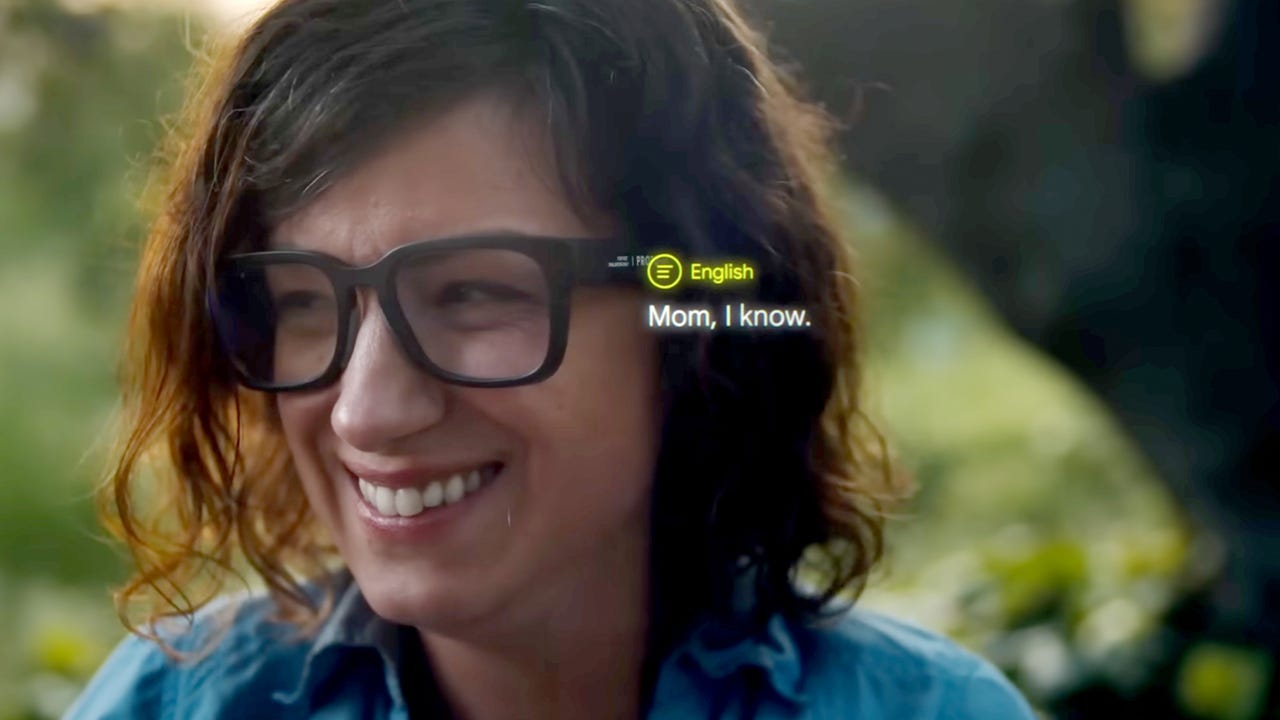
The glasses that were showcased by Google in 2022. Google
As big tech companies like Apple and Meta are debuting their new AR/VR headsets, Google is going the opposite way and ending its own AR glasses efforts, known as Project Iris.
The AR glasses, which resembled reading glasses (unlike the ski goggle-adjacent Apple’s Vision Pro headset), appear to be the ones that were showcased as part of Google I/O 2022. The device would’ve been able to translate what other people say in real-time and display the written words on the glasses for the wearer to see, much like subtitles for real life.
Also: The best AR glasses: Pro-level AR and XR headsets
Google has shifted its focus to developing and licensing AR software to headset manufacturers instead of building the hardware. The company is reportedly building an Android XR platform for Samsung’s headset and a “micro XR” platform for glasses.
According to Insider, the decision to kill the Iris Glasses project comes after reports of internal disagreements, strategy shifts, and layoffs, as confirmed by three insiders. The project’s leader, Clay Bavor, left his position as AR and VR vice president at Google in February.
Google is infamously known for its previous attempts into the AR world with Google Glass. Pulled “from the rubbish bin of great consumer tech that fell flat,” Glass was a brand of smart glasses launched in 2013 that flopped due to terrible wearability and user experience, high price, and privacy concerns.
Also: The best VR headsets for gaming, the metaverse, and beyond
Insider reports that Project Iris could still be resurrected. However, the team was disbanded and redistributed, with some groups working on the Samsung partnership. Others continued working with AR technologies.




















